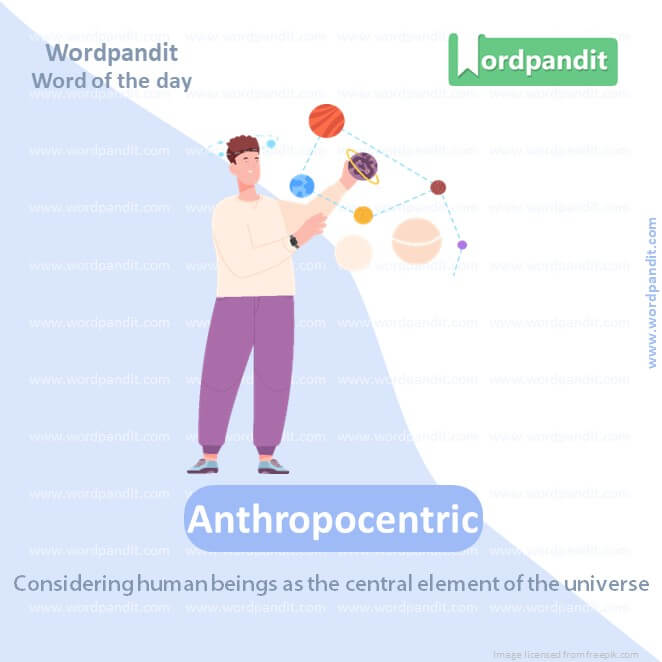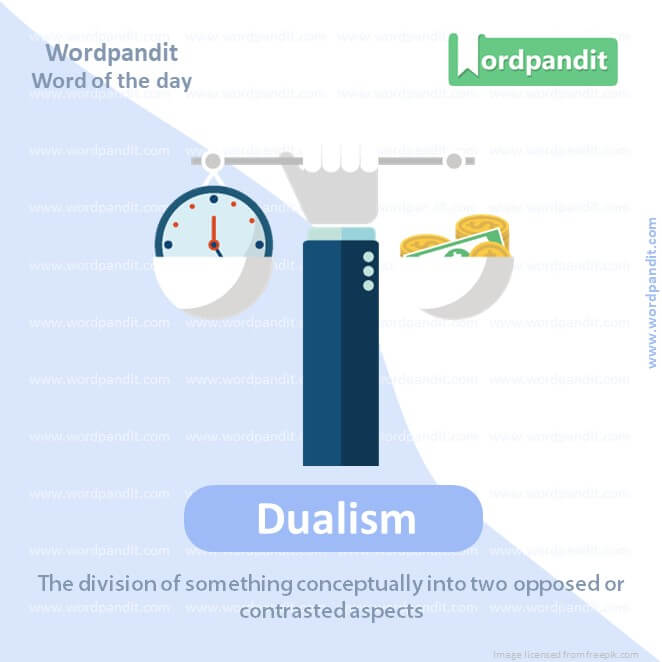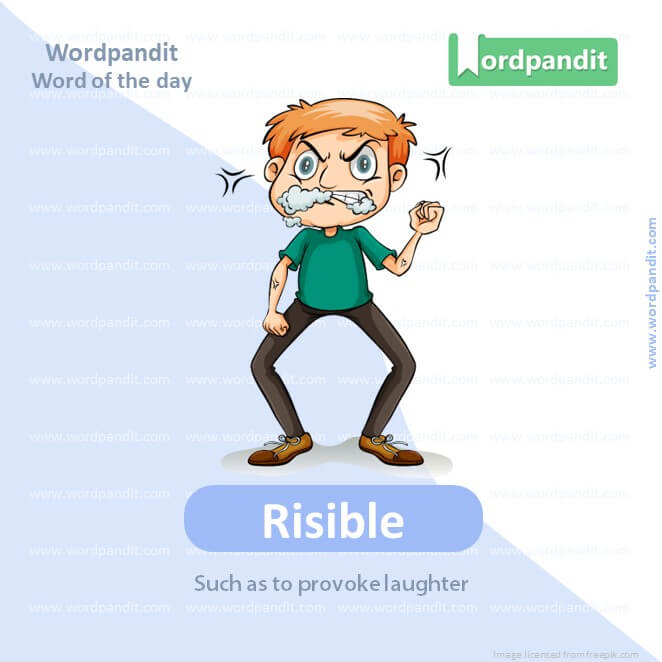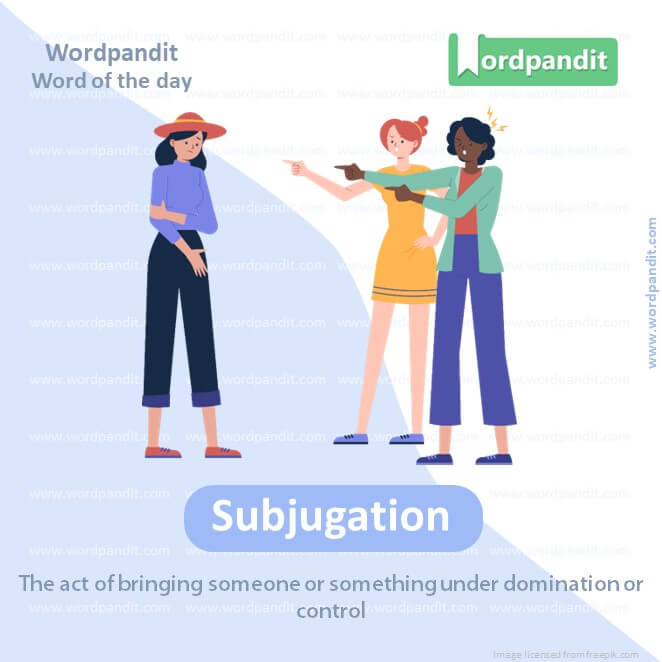Daily Vocabulary Words: List of Daily Used Words in Leading International Newspapers
Hi there. Welcome to this special section @ Wordpandit.
Our endeavour here is very simple: to highlight important daily vocabulary words, which you would come across in leading newspapers in the country. We have included the following newspapers in our selection:
• The New York Times
• The Washington Post
• Scientific American
• BBC
• The Guardian
• Psychology Today
• Wall Street Journal
• The Economist
We are putting in extensive work for developing your vocabulary. All you have got to do is be regular with this section and check out this post on a daily basis. This is your repository of words that are commonly used and essentially, we are posting a list of daily used words. Hence, this has significant practical application as it teaches you words that are used commonly in leading publications mentioned above.
Visit the website daily to learn words from leading international newspapers.

WORD-1: Anthropocentric
CONTEXT: Scientists argue that an anthropocentric perspective hinders our ability to truly understand the delicate balance of our ecosystem.
SOURCE: The Guardian
EXPLANATORY PARAGRAPH: Imagine if you thought everything in the world was made just for humans and revolved around humans. That’s called being anthropocentric. It’s like saying humans are the most important and everything else comes second.
MEANING: Considering human beings as the central element of the universe (noun)
PRONUNCIATION: Anthropocentric
SYNONYMS: Humancentered, humanfocused, egocentric, mancentered, homocentric
USAGE EXAMPLES:
1. Many movies are anthropocentric, showing humans as the main heroes.
2. The scientist argued against an anthropocentric view of nature.
3. The environmentalist claimed that anthropocentric views harm our planet.
4. Anthropocentric beliefs often forget about the importance of animals and plants.

WORD-2: Dualism
CONTEXT: The concept of dualism, which divides the mind from the body, has been debated for centuries and remains a cornerstone of philosophical discussion.
SOURCE: The New York Times
EXPLANATORY PARAGRAPH: Imagine you have two toy boxes, one for cars and one for dolls. Dualism is like believing that there are two main things or ideas that are different from each other, like your two toy boxes.
MEANING: The division of something conceptually into two opposed or contrasted aspects (noun)
PRONUNCIATION: Dooalizm
SYNONYMS: Dichotomy, polarity, bivalence, bipartition, twofoldness
USAGE EXAMPLES:
1. The philosopher spoke about the dualism of good and evil.
2. Mindbody dualism debates whether the mind and body are separate.
3. Dualism is often found in religious teachings.
4. The artist’s work reflects the dualism of nature and technology.

WORD-3: Risible
CONTEXT: The proposal was met with risible comments from critics, who found it utterly impractical.
SOURCE: The Economist
EXPLANATORY PARAGRAPH: Think of something that makes you laugh, like a funny joke. When something is risible, it’s like that joke – it’s funny and makes people want to laugh.
MEANING: Such as to provoke laughter (adjective)
PRONUNCIATION: Rizuhbul
SYNONYMS: Laughable, humorous, comical, hilarious, amusing
USAGE EXAMPLES:
1. The comedian’s act was risible and the audience loved it.
2. I found his excuse quite risible.
3. The movie’s risible scenes had everyone in stitches.
4. Her risible anecdotes always brightened up the room.

WORD-4: Subjugation
CONTEXT: The history of colonial powers is riddled with tales of subjugation and exploitation of native populations.
SOURCE: Al Jazeera
EXPLANATORY PARAGRAPH: Imagine if someone made you do everything they wanted and didn’t let you decide for yourself. That’s what subjugation is. It’s when someone takes control over someone else and makes them follow their rules.
MEANING: The act of bringing someone or something under domination or control (noun)
PRONUNCIATION: Subjugation
SYNONYMS: Domination, oppression, conquest, subordination, suppression
USAGE EXAMPLES:
1. The king’s subjugation of the villagers made them unhappy.
2. The history book discussed the subjugation of native tribes.
3. The subjugation of her spirit was evident in her sad eyes.
4. Many movies depict the subjugation of the weak by powerful villains.
WORD-5: Essence
CONTEXT: In the heart of French perfumery, capturing the true essence of a scent remains both an art and a science.
SOURCE: BBC
EXPLANATORY PARAGRAPH: Think of your favorite juice. The special flavor that makes the juice taste so good is its essence. Essence is like the most important and special part of something.
MEANING: The basic and most important quality of something. (noun)
PRONUNCIATION: Essence
SYNONYMS: Core, nature, heart, spirit, crux
USAGE EXAMPLES:
1. The essence of the story is about friendship and love.
2. She captured the essence of the sunset in her painting.
3. Vanilla essence gives the cake its delicious flavor.
4. Honesty is the essence of a good character.
WORD-6: Instigated
CONTEXT: The violent clashes were instigated by a minority, but the repercussions were felt by many.
SOURCE: The Washington Post
EXPLANATORY PARAGRAPH: Think of when you see one kid starting a water balloon fight in the summer. That kid who started it all “instigated” the fight. It means to start or cause something, especially something that might cause trouble.
MEANING: To initiate or provoke an action or event. (verb)
PRONUNCIATION: Instigateed
SYNONYMS: Triggered, incited, spurred, ignited, prompted
USAGE EXAMPLES:
1. She instigated a debate in the class with her controversial question.
2. The loud noise instigated panic among the crowd.
3. He was accused of instigating the brawl at the bar.
4. The article instigated discussions about climate change.
WORD-7: Cohort
CONTEXT: The latest cohort of astronauts includes a more diverse range of backgrounds than ever before, reflecting a changing industry.
SOURCE: Scientific American
EXPLANATORY PARAGRAPH: Think of your group of friends at school. You all do things together and are of the same age. That’s like a cohort. It’s a group of people who share something in common, like age or experience.
MEANING: A group of people with a shared characteristic. (noun)
PRONUNCIATION: Cohort
SYNONYMS: Group, team, crew, band, gang
USAGE EXAMPLES:
1. The teacher divided the students into cohorts for the project.
2. His cohort always gathered at the local café after school.
3. Researchers studied a cohort of people born in the 1980s.
4. The new cohort of trainees will start next week.
WORD-8: Animosity
CONTEXT: Years of diplomatic tensions have fomented animosity between the two nations, complicating negotiations.
SOURCE: The Guardian
EXPLANATORY PARAGRAPH: Imagine two people who don’t like each other and are always mean to each other. The strong dislike they feel for each other is called animosity. It’s a strong feeling of not liking someone.
MEANING: A strong feeling of hostility or dislike. (noun)
PRONUNCIATION: Animosity
SYNONYMS: Hostility, bitterness, antipathy, enmity, rancor
USAGE EXAMPLES:
1. There was clear animosity between the two competitors.
2. Despite their past animosity, they decided to work together.
3. Animosity grew between the two families over the years.
4. She felt no animosity towards her critics.
WORD-9: Ribbing
CONTEXT: The Prime Minister took the ribbing from his fellow leaders in good spirits, showing a lighter side to the typically stern summit.
SOURCE: BBC
EXPLANATORY PARAGRAPH: You know when friends tease each other in a fun and friendly way? Like when they make jokes about each other’s funny hats? That’s called ribbing. It’s like poking fun at someone, but in a good-natured way.
MEANING: Teasing or making fun of someone in a playful manner. (noun)
PRONUNCIATION: Ribbing
SYNONYMS: Teasing, jesting, joking, chaffing, bantering
USAGE EXAMPLES:
1. The siblings kept ribbing each other about their childhood pranks.
2. He took the ribbing from his coworkers in good humor.
3. Ribbing is common among close friends.
4. She enjoyed the lighthearted ribbing at the family gathering.
WORD-10: Harrowing
CONTEXT: Witnesses described a harrowing scene after the explosion, with emergency responders rushing to aid the injured.
SOURCE: The Washington Post
EXPLANATORY PARAGRAPH: Imagine you watch a movie that’s very, very scary and it makes you feel super worried or sad. That feeling is what you call harrowing. Harrowing means something is very distressing or painful to experience.
MEANING: Extremely distressing or painful. (adjective)
PRONUNCIATION: Harrowing
SYNONYMS: Distressing, agonizing, traumatic, tormented, grievous
USAGE EXAMPLES:
1. He shared a harrowing tale of survival in the wilderness.
2. The news reported a harrowing accident on the highway.
3. She found the movie’s scenes quite harrowing to watch.
4. Listening to his harrowing experience brought tears to my eyes.
Vocabulary English
In the fascinating journey of language exploration, ‘vocabulary English’ stands as a powerful pillar. It represents the diverse array of words that bring thoughts and emotions to life. However, to unlock the full potential of ‘vocabulary English’, it’s necessary to adopt a comprehensive and strategic approach.
Understanding ‘vocabulary English’ goes beyond the mere repetition of words. It demands an intricate weave of understanding, memorization, and application. To grasp the essence of the ‘vocabulary English’, diversify your language resources. Engage with novels, biographies, news articles, and digital content to introduce yourself to words in real-world contexts.
A key to mastering ‘vocabulary English’ involves leveraging effective memory techniques. Use flashcards and digital apps that support active recall and spaced repetition. Mnemonic devices can also be beneficial. Establishing personal, visual, or narrative connections to words foster better recall and understanding.
Consistent exposure to ‘vocabulary English’ greatly enhances learning. Create dedicated time slots for regular vocabulary practice. This method not only consolidates learnt vocabulary but also introduces new words on a daily basis, ensuring a balanced and continuous learning process.
Practice holds the power to transform your ‘vocabulary English’ learning experience. Application of learnt words in daily conversations, professional communication, or digital platforms embeds them deeper into your long-term memory.
In essence, embracing ‘vocabulary English’ is a marathon, not a sprint. It requires immersion in various resources, using memory-enhancement techniques, continuous exposure, and above all, incessant practice. As you navigate this path, you’ll watch your ‘vocabulary English’ grow, raising your language proficiency and connectivity with the English-speaking world. It’s a fascinating journey that opens doors to different cultures, experiences, and opportunities. So, step forth, embrace ‘vocabulary English’, and let the journey begin!







